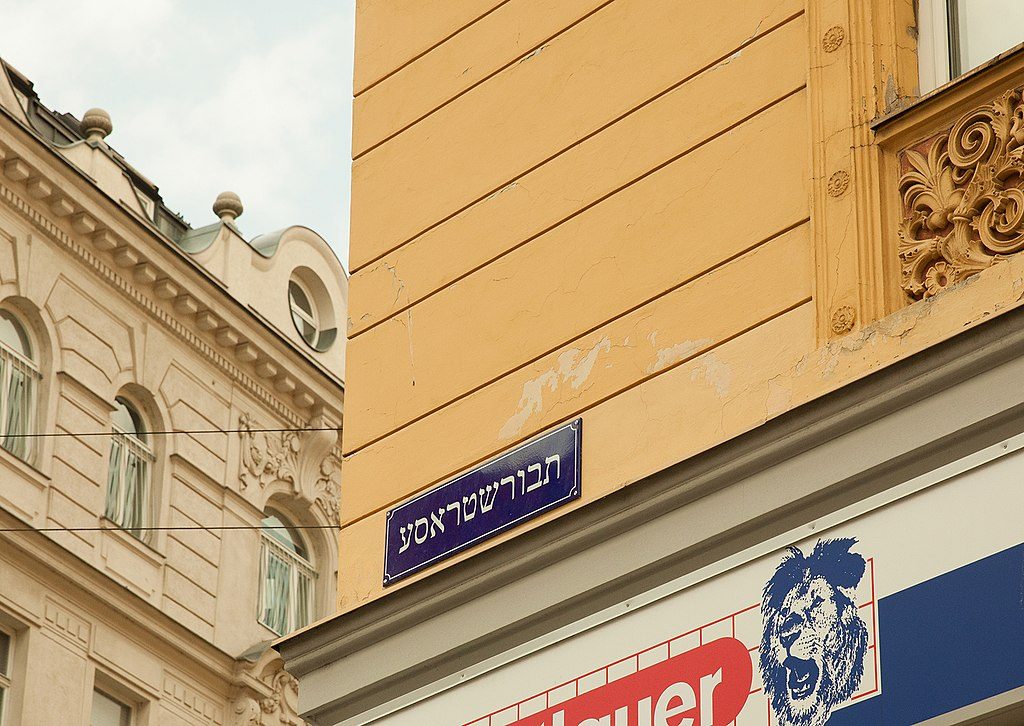5 Russian Words That Come From Yiddish Posted by Maria on Dec 7, 2017 in language
We may be familiar with Yiddish words in English, such as chutzpah or bagel, but Russian has its share of Yiddish-origin words. Yiddish (идиш) is a Germanic language traditionally used by Jews (евреи) in Eastern and Central Europe. Many of them are thought to have entered Russian via the secret language of the criminal underworld (“феня“). Today, they are widely understood by Russian speakers but are still considered slang.
Ксива
This word refers to a document or a paper, often a fake one, but in most cases one that grants you some privileges. Ксива is thought to be derived from the Yiddish word כתיבה [ksívə], meaning “a note” or “writing.” That word, in turn, comes from the Hebrew root for writing.
При задержа́нии оди́н из злоумы́шленников оторва́л с ли́повой «кси́вы» фотогра́фию и съел её.
During the arrest, one of the perpetrators ripped his photo off the fake ID and ate it.
[Игнат Святки. В Екатеринбурге задержаны фальшивые милиционеры-неучи, грабившие прохожих // Новый регион 2, 2009.09.22]
Хохма
The word хохма (a funny thing, joke) sounds like it may be related to the verb хохотать (to laugh loudly). In fact, according to Wiktionary, it is related to an Yiddish word for a joke, which, again, came from a Hebrew word meaning “wisdom” (חכמה).
Мой сын всю доро́гу каламбу́рил, приду́мывал исто́рии на любо́й вкус, остросло́вил, и все его́ хо́хмы каза́лись мне таки́ми наи́вными и незате́йливыми.
Throughout the trip, my son made puns, spun tales to each listener’s liking, and spouted witticisms; all his gags seemed to me so naive and unsophisticated.
[Ильдар Абузяров. Ненормативная лексика (2002)]
Блат
Блат refers to connections on the inside or any kind of protection that helps one obtain benefits through informal channels. This word may be derived from the Yiddish word בלאַט (blat), meaning “sheet of paper.” A person with such informal connection is called блатной (adjective).
Говоря́т, что с таки́ми ро́дственниками, как у меня́, беру́т по бла́ту.
They say, with relatives like mine, I should be getting in with the help of their connections.
[Лидия Вертинская. Синяя птица любви (2004)]
Фраер
This word also comes from Yiddish and means a free person, one who has not been in prison. By extension, this person is a fair target for criminals and any swindlers (cf. the English “sucker”).
Ми́лые, э́то фо́кус для фра́еров, а мы его́ уже́ не раз ви́дели…
My friends, this trick only works on chumps, and we have seen it more than once…
[Владимир Богомолов. Момент истины (В августе сорок четвертого…) (1973)]
Кипиш
Кипиш (other spellings are possible, including кипеш) refers to any kind of commotion, scandal, or upheaval. This word used to refer to a robbery involving a prostitute for distraction, initially coming from חופּה (khupe), “canopy used in a wedding ceremony.”
Я бы и иска́ть не отпра́вилась, да то́лько там Лёнчик ки́пеш подня́л.
I would not have gone to look, but Lyonchik made a lot of noise.
[Татьяна Соломатина. Большая собака, или «Эклектичная живописная вавилонская повесть о зарытом» (2009)]

Build vocabulary, practice pronunciation, and more with Transparent Language Online. Available anytime, anywhere, on any device.






Comments:
iz:
This is so interesting! I love and appreciate by Russian and Yiddish for their expressive and melodic qualities. Thanks for your blog!
Maria:
@iz Thank you, Iz! Glad you found it useful.